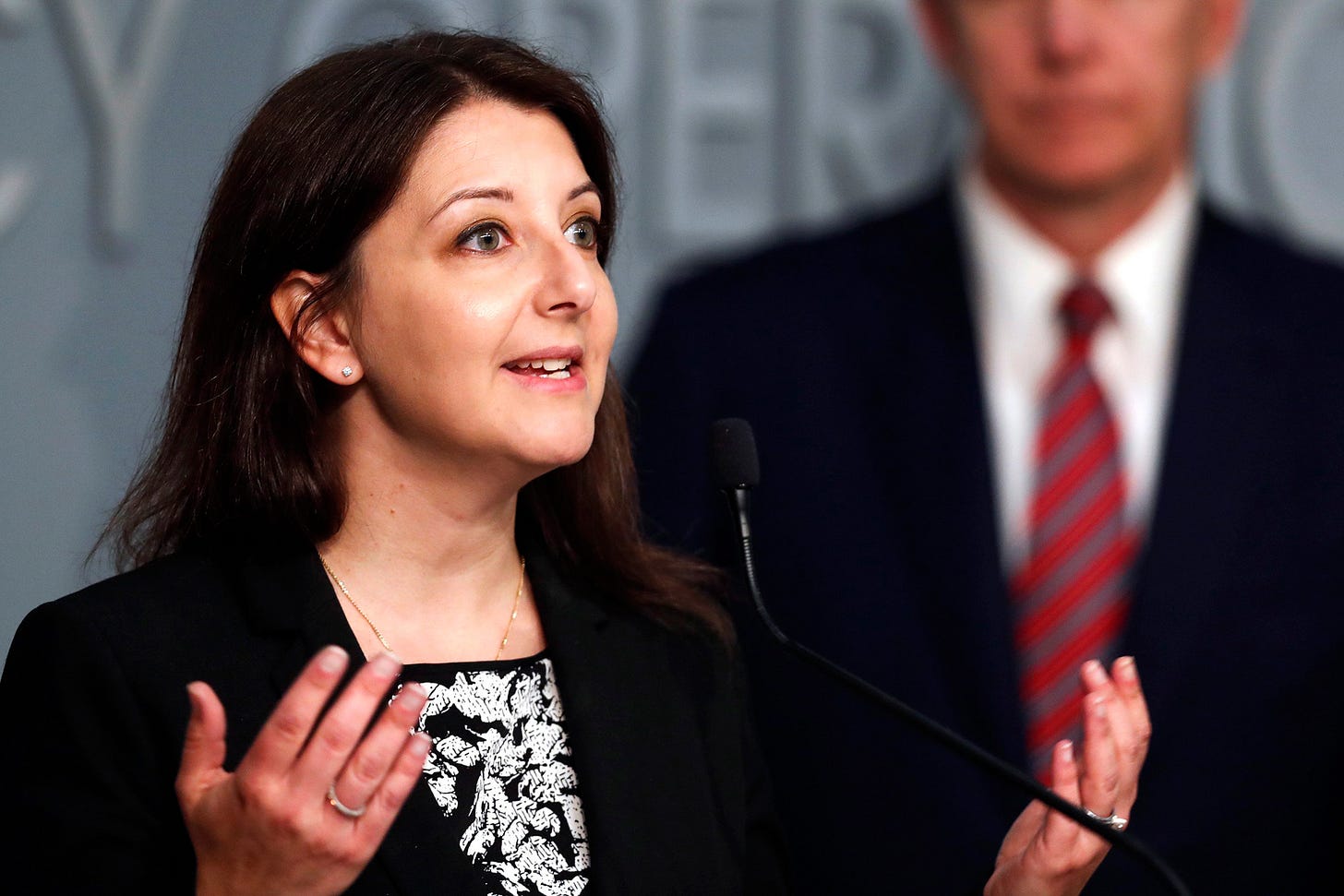Mandy Cohen's government experience will help when leading CDC
Plus: The top nine reasons healthcare workers quit
Good morning and happy Friday. Welcome back to your weekly digest of healthcare news and analysis.
In the news:
Survey: Healthcare workers cite pay as the main reason for staying with an employer
The latest edition of Grant Thornton's State of Work in America survey talked to 5,000 healthcare workers across the country and found that the majority of them said that pay and benefits were the main reasons they stayed with their current employer. Healthcare workers also said that their mental well-being was worse than last year and that upper management does not receive feedback well from frontline workers. Read more from Grant Thornton.
Related: The top 9 reasons healthcare workers quit - Becker’s Hospital Review
American Hospital Association and Catholic Health Association respond to Human Rights Watch report
A recent report from Human Rights Watch claimed that non-profit hospitals aggressively pursue medical debt from low-income patients. The American Hospital Association (AHA) responded by saying the report unfairly targets non-profit institutions and “all but ignores that the root cause of medical debt is inadequate commercial health care coverage.” Ron and I have discussed medical debt on the FLATLINING Podcast several times and explained why new state laws that effectively nullify the consequences of medical debt could do more harm than good. Read more from Becker’s Hospital Review.
What Mandy Cohen’s appointment to the CDC means for the agency
Now that the COVID-19 pandemic is behind us (for the most part), the country has begun its post-mortem on where there were successes and failures. Many might put former New York Governor Andrew Cuomo and current Michigan Governor Gretchen Whitmer into the failure category for their decision to put COVID-19 patients in nursing homes. More politically oriented people might point to Dr. Anthony Fauci or Dr. Francis Collins as problems. Most of these people are gone now, but those of us who spent most of the pandemic in North Carolina will recognize the likely next face of the CDC: Dr. Mandy Cohen. As head of NCDHHS, she led much of North Carolina’s COVID-19 response and held roughly 150 press briefings to explain it. That gives her one of her best credentials that separate her from a few of the previous CDC directors: experience running a government organization. Read more in STAT.
Other articles of interest:
80% of those privately insured like their coverage - Kaiser Family Foundation
Aetna defends its new Medicare Advantage contract with NYC retirees - Becker’s Payer Issues
(CVS 0.00%↑)
CMS: Healthcare spending to top $7 trillion in 2030 - Modern Healthcare 🔒
Election 2024: RFK may find allies in Silicon Valley - KFF Health News
“Two Cents to Save America”
That is the catchphrase and campaign motto for Midwest businessman Perry Johnson. After a failed attempt at running for governor in Michigan, the self-described “quality guru” wants to take on the political establishment in Washington.
I think he has a winning message. Inflation and the economy continue to rate very high as issues that voters care about. So when he says that cutting two cents out of every dollar spent in the federal budget, it sounds like a great idea. How easy it is to solve our debt problems and economy!
This will have consequences for Medicare, Medicaid, and other areas of our healthcare. We’ll tell you about them in the next edition of Pulse Check on the Candidates. Subscribe now so you don’t miss an episode.
Subscribe to the FLATLINING Podcast on Apple Podcasts, Spotify, the iHeartRadio app, Amazon Music, Google Podcasts, Stitcher, Pandora, TuneIn, and Audible.
Ukraine
In any part of the world, having a physical disability makes life more challenging. Fortunately, in the United States, Canada, and in most of Europe, accommodations have been made in everyday life to prevent discrimination against these individuals. But as I have discussed in this newsletter and undoubtedly you have heard elsewhere, war doesn’t discriminate. This week The Hill reported on the challenges that the visually impaired are facing in war-torn Ukraine. Read more in The Hill.
Final Thought
Researchers at the University of California, San Diego have found that the AI chatbot ChatGPT provides factual information when asked questions about addiction, depression, and suicide. While it is good that it provides accurate information about some of these public health issues, researchers said that it would be better to provide referrals and not merely advice. As industry leaders and legislators have discussions on how to regulate AI, these researchers suggest that public health experts need to be involved so that individuals who need can be easily and quickly connected to the services that they need. Read more from CNN.



